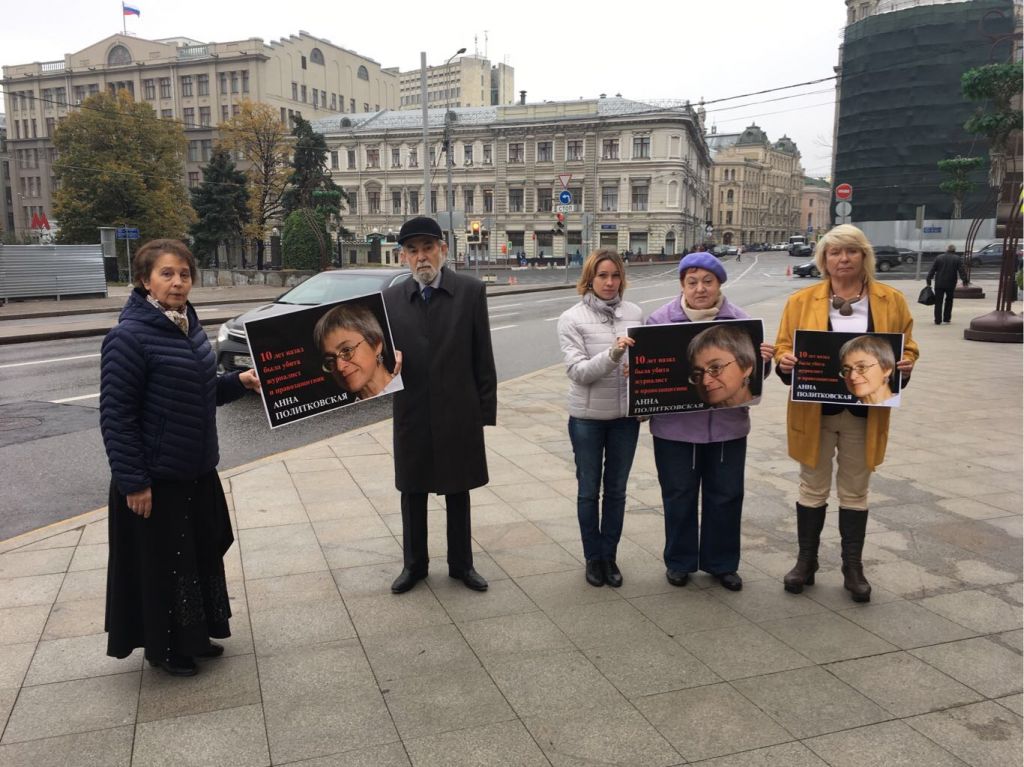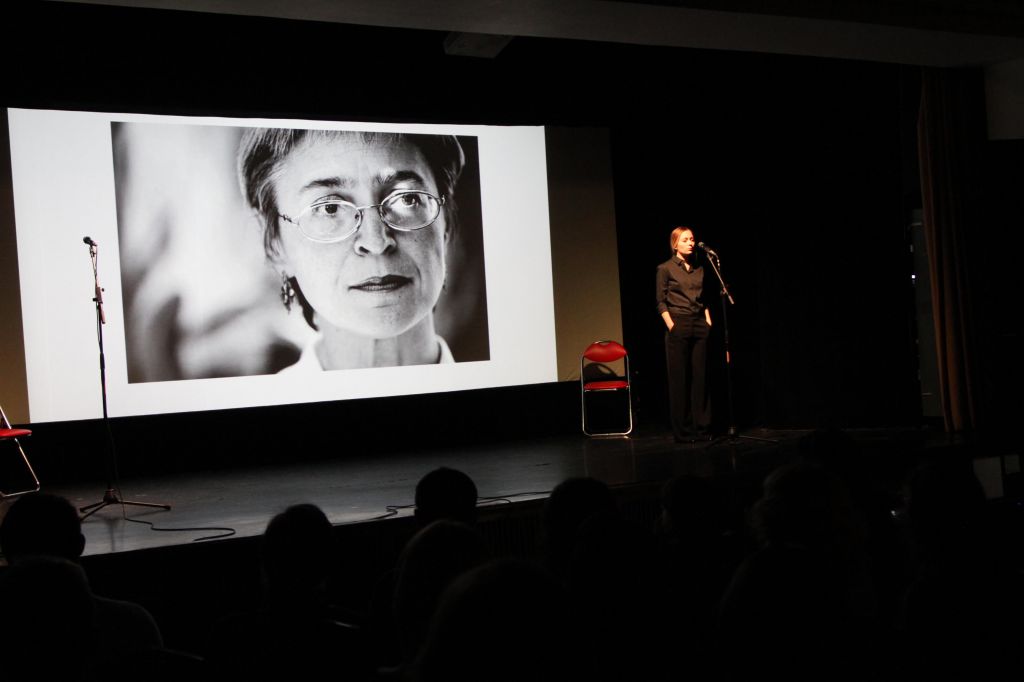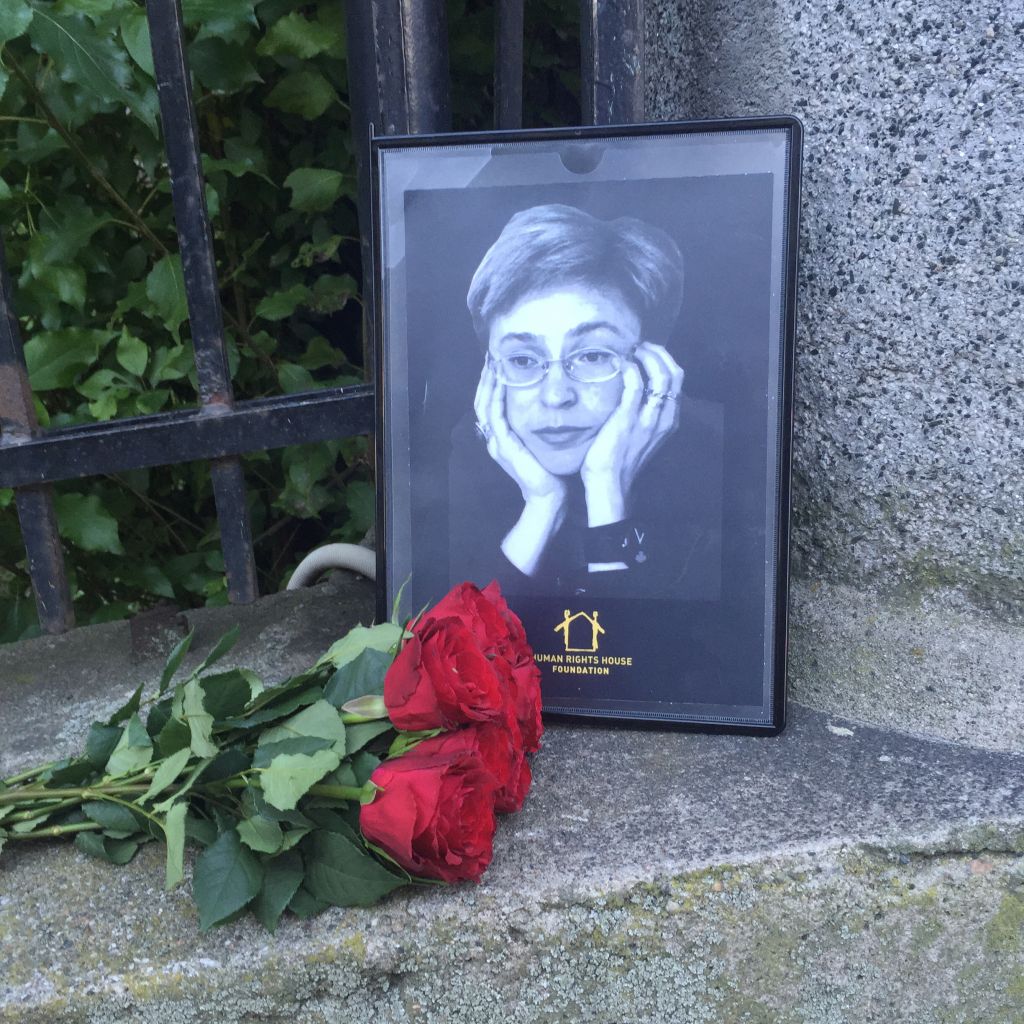“It wasn’t her style just to write about one story and move right to another. She participated, as much as she could, in the fate of the people she wrote about, tried not to let out of sight the long-suffering families… I think it was because her heart ached for her own country, in which she grew up, where her children were born, where they would live. I think she also felt her own civil responsibility for what was happening in Russia, and therefore took everything personally, with that piercing pain that to this day can be felt in each of her materials, if you re-read them today. I’m certain that one day there will be a street in Grozny named after Anna Politkovskaya. Chechens, grateful for their heroine, will pay due respect to her memory, even though they are deprived of that opportunity today” wrote editor-in-chief of the North Caucasian DOSH magazine Abdulla Duduev, in an article written for OpenRussia.
Anna Politkovskaya was shot dead in her apartment building in Moscow. The murder coincided with the birthday of Russian President, Vladimir Putin, of whom Anna Politkovskaya was an outspoken critic.

Member organisations of Russian Research Center for Human Rights were among those marking the day by honouring Anna Politkovskaya through a picket with posters of Anna in the centre of Moscow this morning. Human Rights House Foundation placed roses in front of a portrait of Anna Politkovskaya outside the Russian Embassy in Norway.
In an article for The Guardian entitled “My mum and Anna Politkovskaya: women who died for the truth”, Lana Estemirova, the daughter of murdered Russian journalist Natalia Estemirova, suggests that what makes a great journalist is compassion, and that compassion was the supowerpower of Anna Politkovskaya “Compassion made her spend hours in the freezing cold, delivering water for hostages in Dubrovka. Compassion was the reason Anna jumped on the first plane to Beslan to report on the deadly school siege, only to be poisoned on the flight. She banged on doors, rowed with corrupt politicians, shouted at heartless army men. She was fierce, stubborn and strong. She was unstoppable until the end.”
As a vocal opponent of the second Chechen war, her work included coverage of Russian military atrocities against Chechen civilians, and criticism of pro-Russia Chechen administration led by Akhmad Kadyrov and his son, the current President of Chechnya, Ramzan Kadyrov.
The importance of her work in documenting atrocities in Chechnya, and the extent to which Anna Politkovskaya had travelled in the republic for her work was further underlined by Duduev’s article “Probably few Chechens during their entire lifetime have travelled around their own country as much as Anna Politkovskaya did. There is not a single area in Chechnya where she had not been while gathering information about the victims of war. Politkovskaya spared no effort in bringing to the outside world the truth about the horrific war crimes committed behind the cover of the so-called anti-terrorist operation, in the need of which so many people in Russia and even beyond believed. She tried to open people’s eyes”
According to Glasnost Defense Foundation, 211 journalists have been murdered in Russia over the last 15 years. Anna Politkovskaya, Natalia Estimirova, and Boris Nemtsov are the most famous names in the West, and were persons who openly criticised Russian policy in the Chechen Republic. Besides, hundreds of journalists are being threatened and beaten each year.
The murder of Anna Politkovskaya was the beginning of a new political era of fear in Russia according to Anna Dobrovolskaya, International Youth Human Rights Movement and Human Rights House Voronezh “It became clear to all that if you dare to speak out and tell the truth about human rights violations, wars, military operations and corruptions – you can not only be imprisoned – you can be killed”. Highlighting the boldness of the murder of Boris Nemtsov outside of the Kremlin, Dobrovolskaya continued “Boris Nemtsov murder is the exact answer to the question if the political freedoms and especially freedom of speech became better protected in today’s Russia.”
Journalists and correspondents working on covering the situation in North Caucasus. On 1 August 2014 Timur Kuashev, correspondent for DOSH magazine, was kiilled. On March 9, 2016, several journalists, including Swedish and Norwegian journalists, accompanied by the Russian Committee Against Torture, were attacked at the border between the republics of Ingushetia and Chechnya. A month later, on 16 April 2016 the correspondent of the News Agency Caucasian Knot, Zhalaudi Geriev was kidnapped while traveling to Grozny, the capital of the Chechen Republic. Later on 5 September Zhalaudi Geriev was sentenced to 3 years in prison for possession of drugs. Geriev claimed he was tortured to give the confession.

A play, entitled “Journalist. Life in a Second”, based on Anna Politkovskaya and Yury Shchekochikhin’s texts produced by the Russian Union of Journalists was performed at a memorial event at the Moscow Journalist Club on October 7.
More on the story
External Coverage
- RFEL: Anna Politkovskaya’s Last Interview
- The Guardian: The murder that killed free media in Russia
- Lana Estemirova/The Guardian: My mum and Anna Politkovskaya: women who died for the truth
Coverage from HRHF
- 09/10/09 Three years without Anna Politkovskaya
- 08/10/08 Anna Politkovskaya: unanswered questions
- 15/10/07 A year without Anna Politkovskaya (Concerts)
- 02/10/07 A tribute to Anna Politkovskaya
- 16/10/06 Anna Politkovskaya in memoriam I





